Why Cambridge congestion charge views are key in by-election poll
- Published
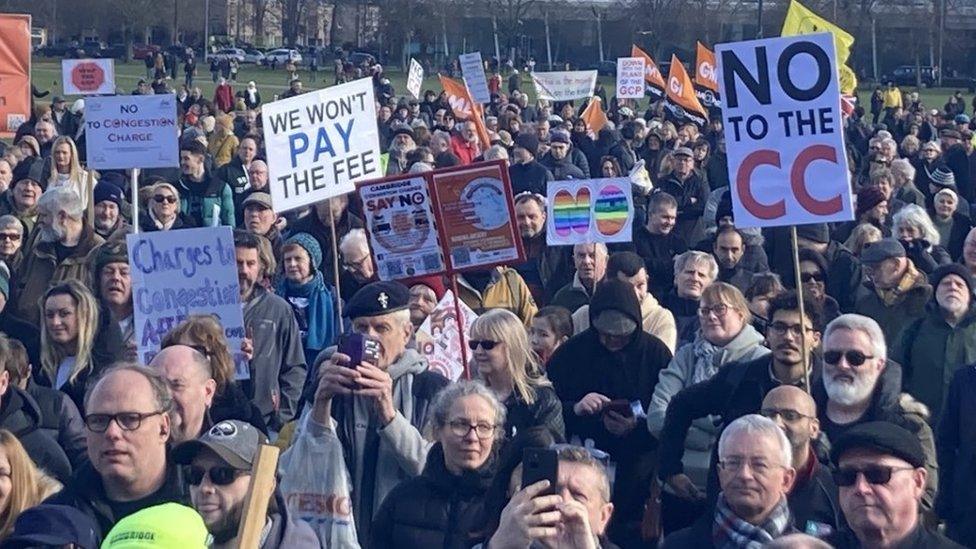
County councillors voted against having a referendum on the plans
Could the result of a council by-election be considered an unofficial referendum on plans for a congestion charge in Cambridge?
The former deputy leader of Cambridge City Council, Alex Collis, resigned after the May local elections, citing her opposition to the congestion charge as a factor in her decision.
The move has prompted a by-election in her King's Hedges ward on 4 July.
Proposals for a sustainable travel zone (STZ) came from the Greater Cambridge Partnership (GCP), a body that includes three local councils, businesses and the University of Cambridge.
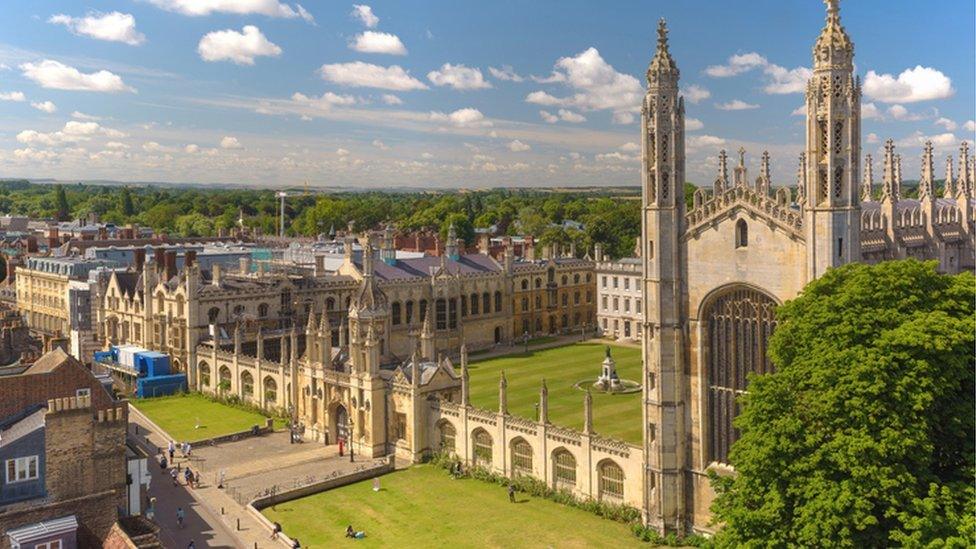
Cambridge drivers could face congestion charges by 2027 under the proposals
The partnership is proposing that car users pay a daily charge of £5 if they drive within the STZ between 07:00 and 19:00 on weekdays.
Van drivers would pay £10 - and HGV drivers £50 a day.
The GCP has promised a "London-style" bus network in return, as well as improvements to the cycling and walking infrastructure.
The three councils have repeatedly ruled out an official referendum on the plans, but the charge appears to be the only topic on the minds of many voters in the by-election - and those standing for election.
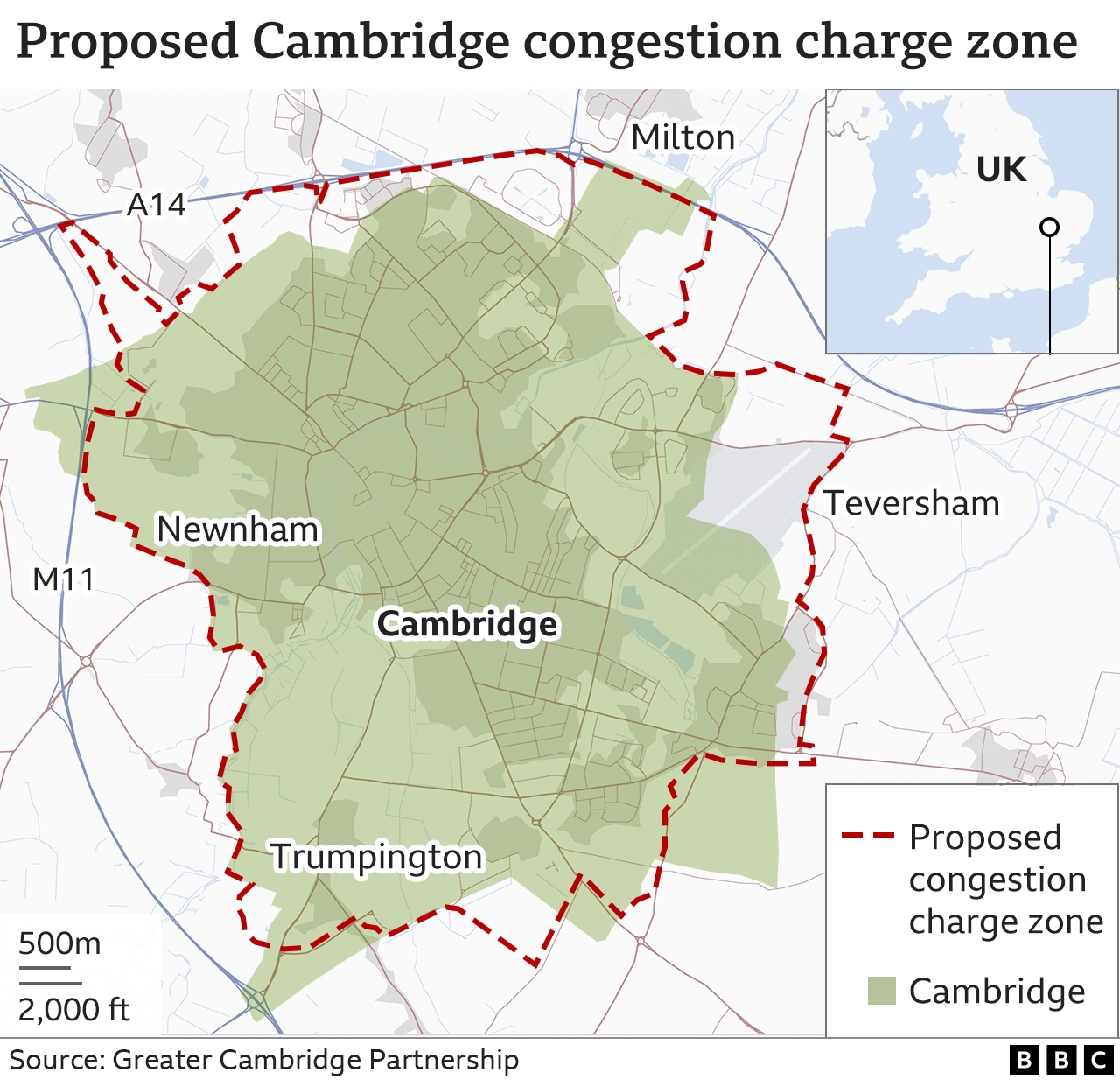
In an interview with BBC Radio Cambridgeshire, Ms Collis said her opposition to the congestion charge was central to her decision to leave, and she was concerned that local residents were not being listened to by councillors.
There is little doubt that the congestion charge was key to results for the Cambridge City Council elections in May.
Although the Conservatives did not actually win any seats on the council, their consistent opposition to the congestion charge appeared to win them plenty of votes.
They got their highest vote share in recent years in every seat, and came very close to winning in a couple of wards.
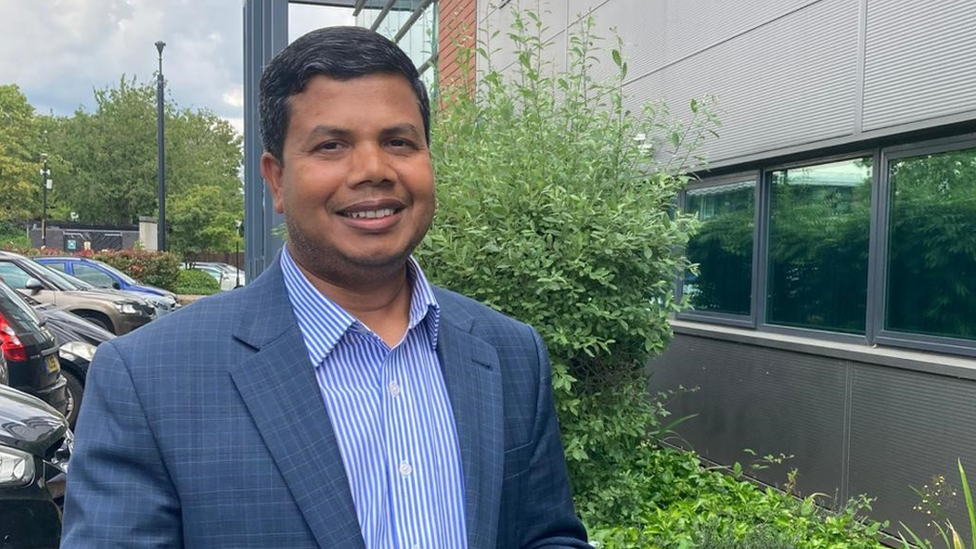
Conservative Delowar Hussain said people were worried about the expense of the charge
Success in King's Hedges would be the first time the Conservatives would sit on Cambridge City Council since 2012. Tory candidate, Delowar Hussain, said people he has met on the doorstep voiced concerns about the cost.
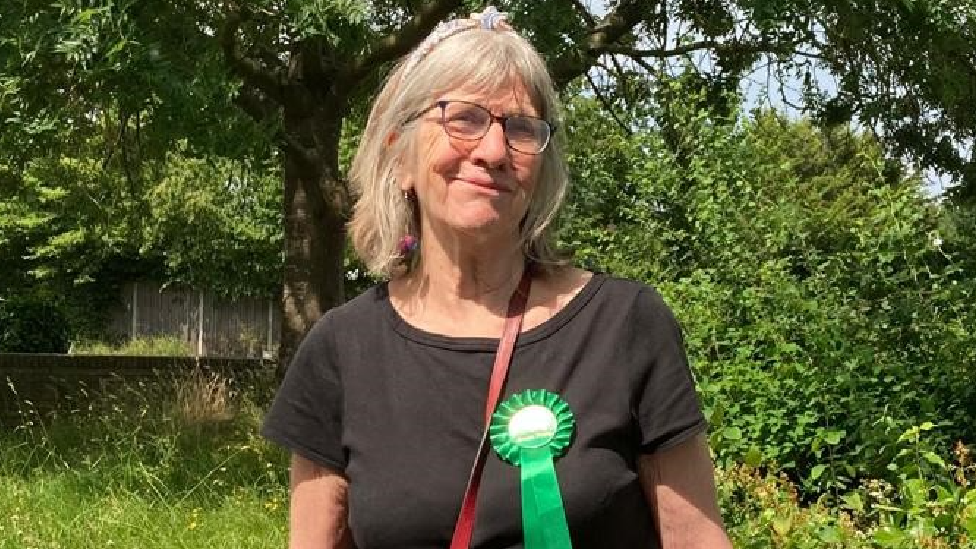
Elizabeth May, of the Green Party, said money could be raised through a tourist tax
The Green Party candidate, Elizabeth May, said: "The congestion charge is a regressive tax in that it affects the poorest more."
She believed alternatives should be considered such as a "workplace car parking levy and possibly even a tourist tax".
Jamie Dalzell, standing for the Liberal Democrats, said he opposed the plans as they stood - but added locals felt ignored in the process, with communities facing a "bigger financial burden".
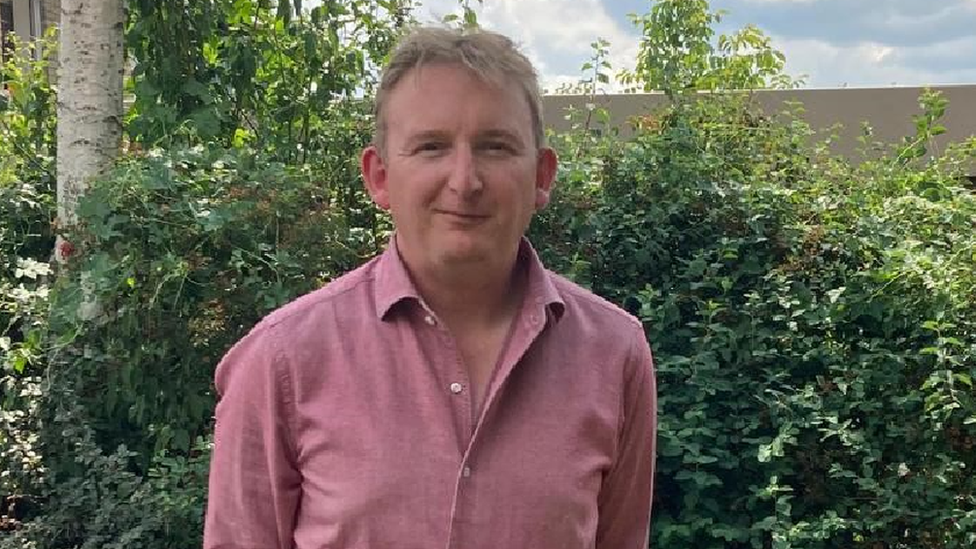
Jamie Dalzell, for the Liberal Democrats, said locals felt ignored
Labour - fighting to hold the seat with candidate Zarina Anwar - want more exemptions for low-income earners, shift workers and those who need to travel in peak time.
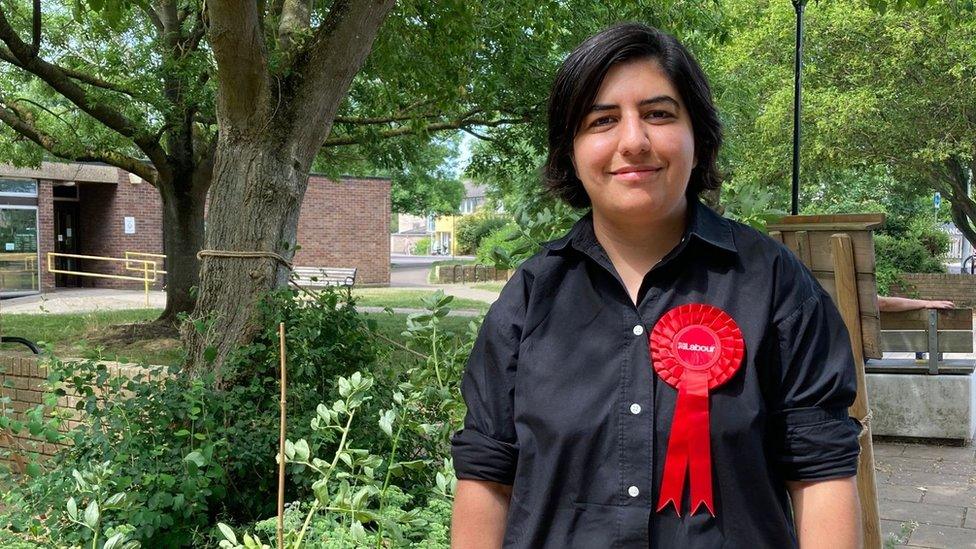
Labour's Zarina Anwar wants support for lower earners and shift workers
Winning the by-election will not affect control of Cambridge City Council - as Labour has a significant majority - but the result could give a clear message to the councillors deciding on the next steps for congestion charge plans in the coming weeks.

Find BBC News: East of England on Facebook, external and Instagram, external. If you have a story suggestion email eastofenglandnews@bbc.co.uk or get in touch via WhatsApp on 0800 169 1830
Related topics
- Published8 June 2023
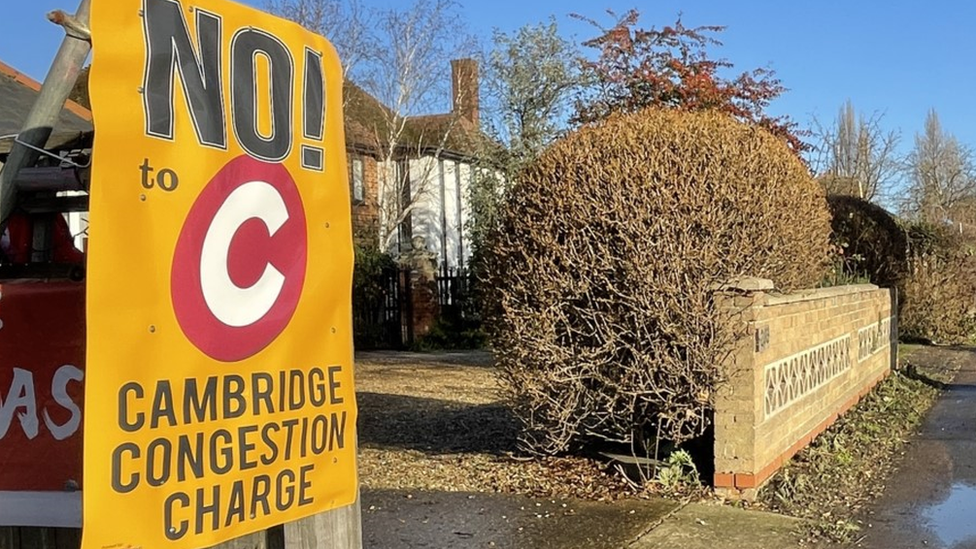
- Published26 May 2023

- Published13 February 2023
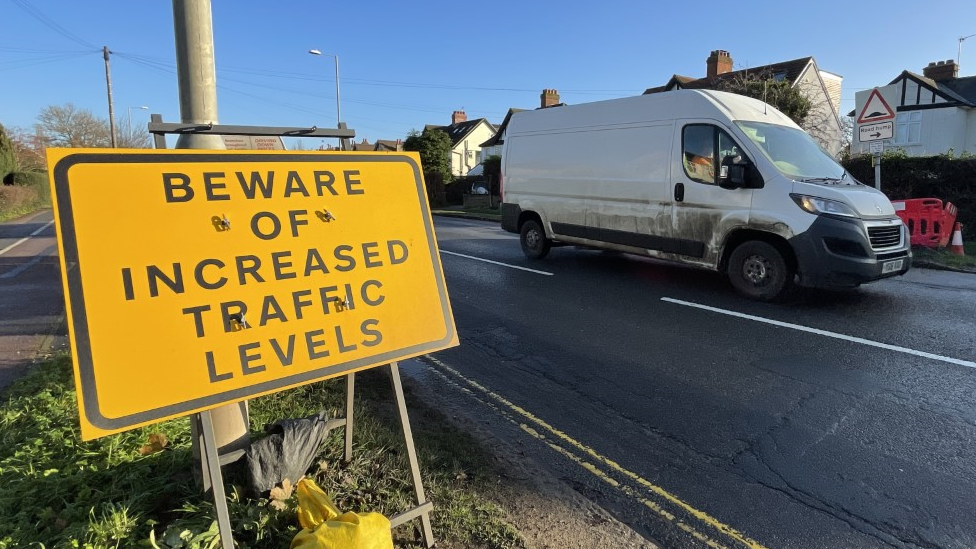
- Published5 February 2023
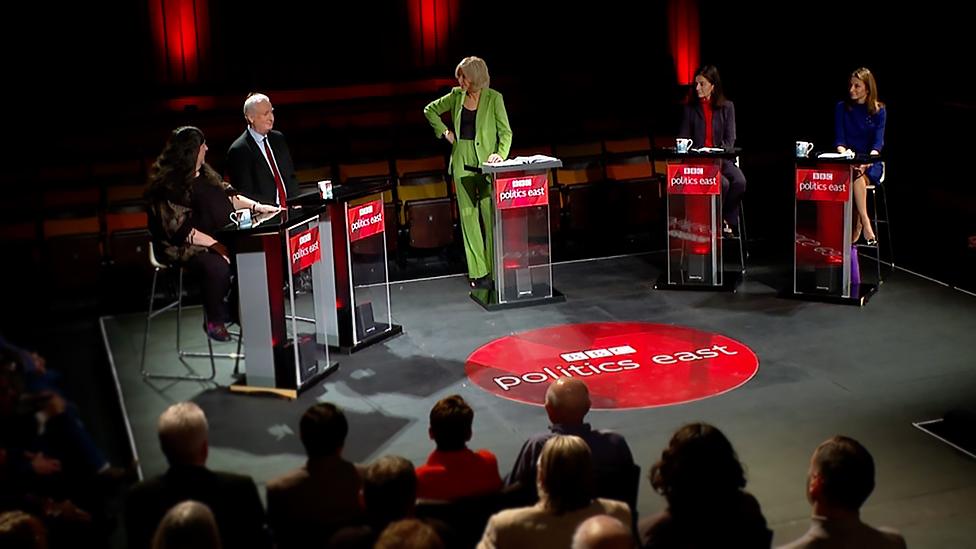
- Published3 February 2023
